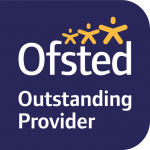The Early Years Foundation Stage (EYFS) is from birth to the end of the academic year in which a child has their fifth birthday (normally known as the Reception Year).
The four principles of the EYFS are:
- A Unique Child: This recognises that every child is a competent learner from birth who can be resilient, capable, confident and self assured.
- Positive Relationships: Children learn to be strong and independent from a base of loving and secure relationships with parents and/or a key person.
- Enabling Environments: The environment plays a key role in supporting and extending children’s development and learning.
- Learning and Development: Children develop & learn in different ways and at different rates and all areas of learning and development are equally important and inter-connected.
The Early Years Foundation Stage (EYFS)
Our pre-school curriculum will be planned in line with The Early Years Foundation Stage (EYFS)
There are seven areas of learning and development.
Children mostly develop the three Prime Areas first.
These are:
- Communication and Language
- Physical Development
- Personal, Social and Emotional Development
These prime areas help them to develop skills in four specific areas.
These are:
- Literacy
- Mathematics
- Understanding the World
- Expressive Arts and Design
In order to learn, a child needs to develop a sense of being secure and valued. Ladybird Forest Pre-School works to ensure that each child has a positive image of him/herself as a valued member of the setting.
Self-esteem and a positive self-image are promoted and nurtured. Children should also learn to develop respect for others needs, cultures and beliefs.
When children feel valued and secure, they are far more likely to have the confidence in their abilities to be a successful learner with an enthusiasm to acquire knowledge.
Ladybird Forest Pre-School examples;
Children learn to co-operate and work with each other, to listen and respond to others, developing social skills during play and small group work.
In many activities children work and play together cooperatively, whether it be working together on a project such as model making or playing in the role play area.
This focuses on the children developing skills in communication, speaking and listening.
Each day children have the opportunity to speak and listen to each other and adults in ‘talk circles’ and class discussion. They have opportunities to use language to imagine & recreate roles & experiences in play situations such as role play and small world activities.
They listen to songs, stories, rhymes & poems and make up their own.
READING:
Children explore, enjoy, learn and use words and text in books.
PLANNING
Ladybird Forest Pre-School discusses the medium-term planning during staff meetings and plans around the children’s needs and next steps. The setting also incorporates a weekly themed topic around the children’s interests.
Children’s next steps are incorporated daily within the setting, practitioner have sound knowledge of their key children and plan their next steps.

